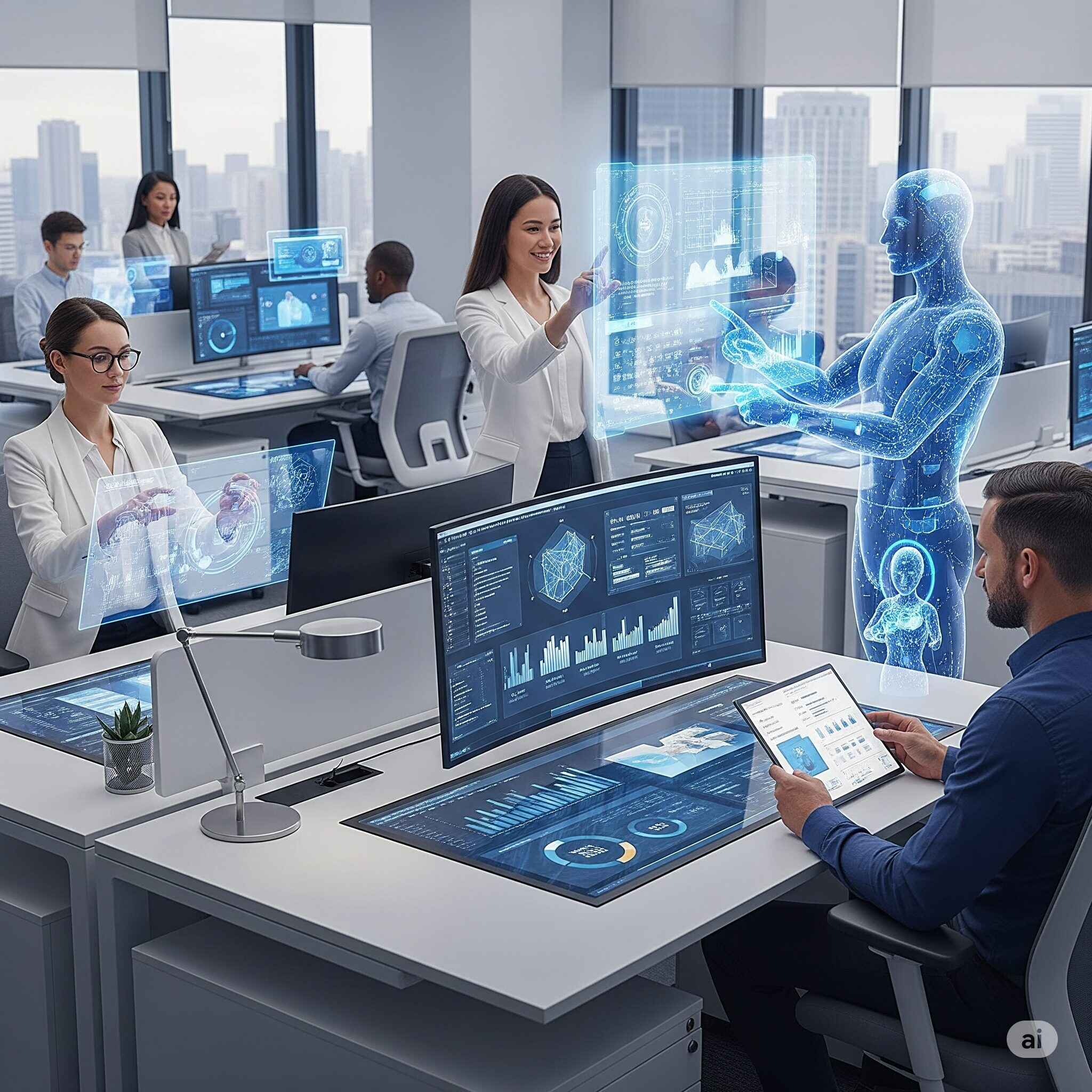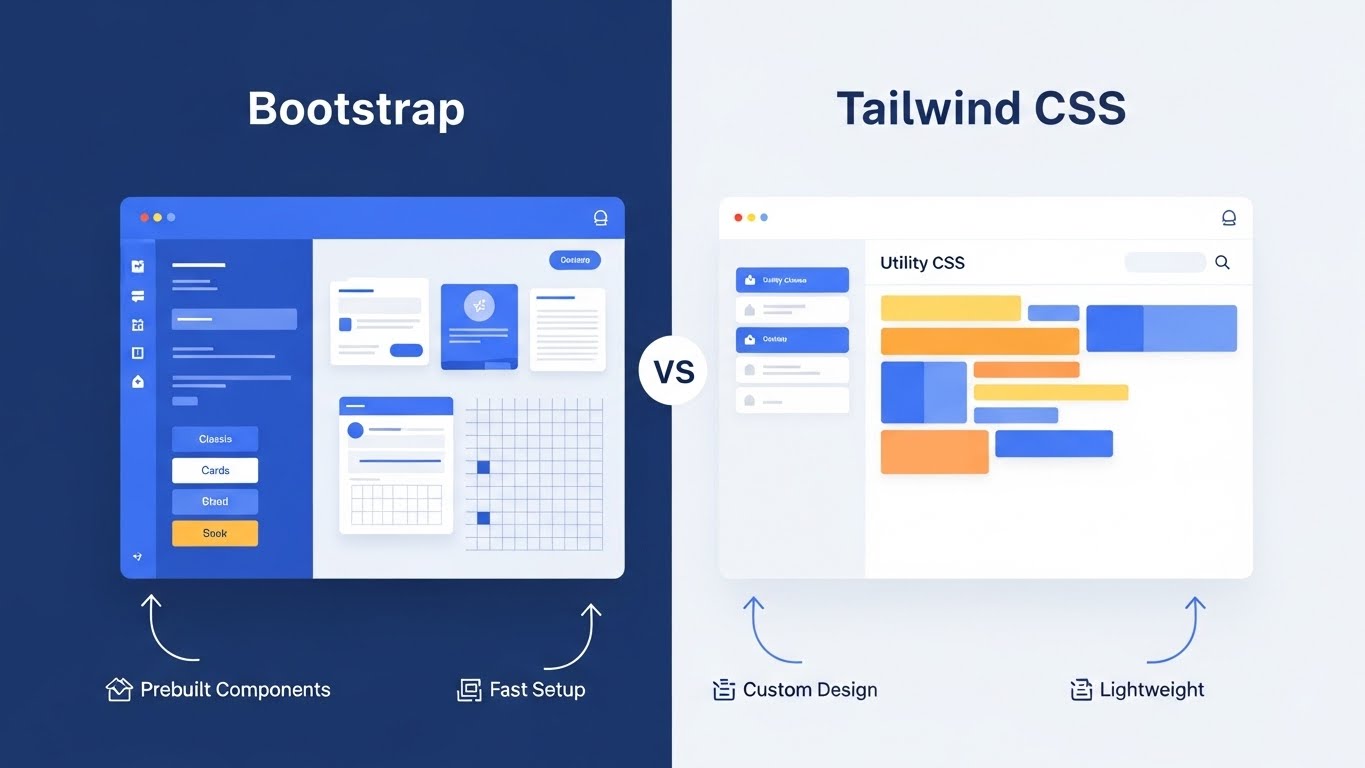<strong>How AI Will Change the Job Market in the Next 5 Years</strong>

📅August 12, 2025
Artificial Intelligence (AI) is no longer just a futuristic buzzword. It has moved from research labs into everyday life, quietly reshaping industries, workflows, and career paths. In the next five years, AI’s influence on the job market will be transformational — creating new opportunities, enhancing productivity, and, in some cases, replacing outdated roles.
This isn’t speculation. Reports from McKinsey & Company, the World Economic Forum (WEF), and Gartner consistently show AI adoption accelerating across industries. By 2030, WEF estimates that AI could automate over 30% of tasks in 60% of jobs, but fewer than 5% of roles will be entirely replaced. The real change will come from how jobs are done and which skills workers need to stay relevant.
1. Automation Will Replace Routine Tasks — Not All Jobs
One of the most common fears about AI is job loss. While some positions will be phased out, the reality is more nuanced. AI is more likely to automate repetitive, low-value tasks rather than completely replace human workers.
Administrative roles: Data entry, scheduling, and basic reporting can now be handled by AI assistants like Microsoft Copilot and Google Duet AI.
Customer service: AI-powered chatbots resolve basic queries 24/7, freeing human agents to handle complex issues.
Manufacturing: Robotics paired with AI are streamlining assembly lines, reducing human involvement in repetitive work.
However, roles requiring empathy, creativity, or complex judgment — such as teachers, doctors, designers, and managers — are much harder to replace. In fact, AI could enhance these roles by providing insights, automating administrative work, and supporting decision-making.
Key Stat: McKinsey projects that by 2030, AI will free up 20–30% of time in many occupations, allowing workers to focus on higher-value activities.
Read: Top 5 Business Automation Tools
2. New AI-Driven Careers Will Emerge
While some jobs will decline, others will grow rapidly — especially those related to building, managing, and ethically guiding AI systems.
High-growth AI-related roles include:
Prompt Engineers – Experts who create precise queries to get the best output from AI models.
AI Trainers & Data Annotators – Specialists who teach AI to recognize patterns and refine outputs.
AI Ethics & Compliance Officers – Professionals ensuring AI tools meet legal and ethical standards.
Human-AI Workflow Designers – Strategists who integrate AI into existing work processes effectively.
Just five years ago, “Prompt Engineering” wasn’t on anyone’s radar. Today, companies like Anthropic and OpenAI are offering salaries above $250,000 for top talent in this niche.
Read: 2025 Web Development Job Market
3. Demand for Digital & Hybrid Skills Will Skyrocket
AI adoption will make hybrid skill sets — a combination of domain expertise and AI literacy — more valuable than ever.
Examples of hybrid professionals:
A financial analyst who can use AI to build predictive market models.
A journalist who knows how to fact-check using AI-driven tools.
A marketing strategist who leverages AI to personalize campaigns at scale.
In-demand skills for the AI era:
Data analytics & visualization
Basic machine learning concepts
Cybersecurity for AI systems
Problem-solving & critical thinking
Creativity and storytelling
Insight: LinkedIn’s Future of Skills report shows that AI-related skills have grown 250% in demand since 2020, with no sign of slowing down.
4. Remote Work Will Become Even More Global
AI-powered collaboration tools will make remote work smoother and more inclusive.
Real-time AI translation will allow teams to work seamlessly across languages.
AI project management systems will automate resource allocation and track progress.
AI transcription will make meetings instantly searchable and shareable.
This will open doors for talent in emerging economies to work for global companies — but it will also increase competition for remote roles. Workers will need to differentiate themselves with specialized skills to stay competitive.
5. Lifelong Learning Will Become a Career Requirement
The speed of AI innovation means skills can expire within 3–5 years. Professionals who stop learning risk becoming obsolete.
Online learning platforms like Coursera, Udemy, and Khan Academy are expanding AI-specific courses.
Micro-credentials in AI ethics, data literacy, and automation tools will become common in job applications.
Employers will increasingly fund AI training programs to retain skilled workers.
Takeaway: The future of work won’t be about getting a degree and calling it done — it will be about continuously evolving alongside technology.
6. Ethical & Regulatory Roles Will Gain Importance
As AI becomes more embedded in business and society, ethics and compliance will move to the forefront. Governments are already drafting AI regulations to prevent bias, protect privacy, and ensure transparency.
Jobs related to AI governance will grow, including:
Bias auditors
AI policy consultants
Algorithm transparency experts
Companies that fail to address AI ethics could face lawsuits, reputational damage, and regulatory penalties — making this a lucrative and stable career path.
Final Thoughts
The next five years will mark a turning point in how AI shapes the job market. Automation will take over repetitive tasks, but it will also create entirely new career paths. The biggest winners will be those who:
Learn AI literacy alongside their core profession.
Embrace continuous learning.
Develop skills AI can’t replicate — empathy, creativity, and strategic thinking.
Businesses that balance automation with human strengths will not only survive but thrive in this new era. For workers, the message is clear: AI isn’t here to replace you — it’s here to work with you. But you must be ready to adapt.

